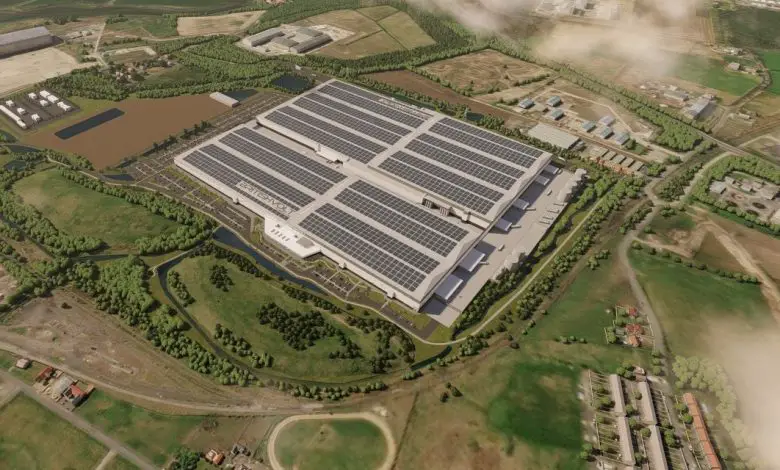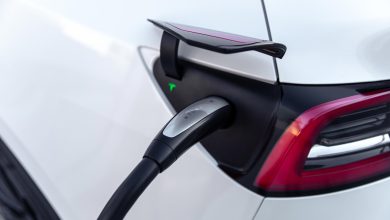UK’s Electric Vehicle Gigafactory Plan Crashes With BritishVolt
ChargingBritishvolt had raked in close to $2.5 billion in funding promises

Britishvolt had lofty plans of becoming the electric vehicle battery hub of the UK until Tuesday, January 17 2023 when the plans came crashing like a pack of cards. The startup tipped by former prime minister Boris Johnson to spearhead a greener economy had been building a multi-billion-pound facility in Blyth, northeast England.
Founded in 2019 by Swedish entrepreneurs Lars Carlstrom and Orral Nadjari, the company has raked in close to $2.5 billion in funding promises including the signing of a memorandum of understanding (MoU) to be Lotus and Aston Martin battery suppliers and £100 million ($123 million) from the UK government.
Britishvolt fell into administration on Tuesday. This is a process where a company in distress brings in outside expertise to attempt the recovery of some parts of the business. This is an equivalent of Chapter 11 bankruptcy in the United States. The majority of its 300 staff have been made redundant, “with immediate effect”.
The fall is coming barely months after the company broke ground in August 2022 for the construction of a £3.8 billion gigafactory in Northumberland.
Britishvolt was supposed to start producing hundreds of thousands of lithium-ion batteries annually for the British automotive sector. It was an industrial renaissance of some sort for the northeast of the country that was perceived to be economically deprived.
Financial firm EY will oversee Britishvolt’s administration. “The company has entered into administration,” EY said, confirming the formal submission of the application for the process.
Towards the end of 2022, Britishvolt had been in emergency fundraising talks. The firm had hoped to reach a rescue deal that would see a consortium of investors buy a majority stake.
The company was hoping to produce 300,000 batteries annually at Blyth. The site was also projected to employ over 3,000 people and support 5,000 other supply chain jobs.
Britishvolt’s collapse sparks fears concerning UK’s EV battery production capability
Britishvolt’s collapse has sparked fears about the capability of the UK to produce enough EV batteries to support the country’s automobile sector. Consequently, the Business Committee has launched an inquiry to study the feasibility of having enough battery supply in the country for UK-made electric vehicles.
“The future of car manufacturing in the UK,” said Darren Jones, the chair of the Business, Energy, and Industrial Strategy Committee, “hinges on our ability to make electric vehicles and export them into the EU.”
Besides Britishvolt, the committee will also examine the reason why BMW stopped making the electric version of its Mini in Oxford. The fall of Britishvolt means that the country now has only one battery maker in Sunderland which produces batteries exclusively for Nissan.
According to Jones, “[The UK] need local suppliers of EV batteries—something [the country] is lagging behind on compared to other parts of the world”.
With the UK set to ban new diesel and petrol cars in 2030, the country needs to ramp up the production of electric vehicles to meet the growing demand. According to experts, it will take at least half a decade to set up a fully operational gigafactory.
The inquiry is calling on experts in the industry to provide information on the country’s manufacturing capacity and the risk of not having a domestic supplier of EV batteries.
“The inquiry will examine the roadblock to the development of electric car batteries in the UK,” said Jones, “and what the country must do to protect the thousands of jobs across the country in the sector.”
Britishvolts was a disaster from the start
Unlike most startups, the founders of Britishvolts had no experience in the EV space. They bootstrapped their way up the ladder and made bold promises that hinged on the prospects of future growth. The lack of industry knowledge was a huge problem from the start.
“It was always going to be difficult,” said David Bailey, a Birmingham Business School professor of business economics. “They had no track record in technology development, failed to secure adequate funding for building the £3.8 billion factory, and had no big customers.”
A former employee that left the company in December felt differently during an interview with WIRED on the condition of anonymity. “In some ways, I am surprised,” the former employee said. “The business had ambitious plans and the knowledge to execute them, judging from the people I worked with.”
Trouble started when Carlstrom and Najdari were forced to step aside in August 2022 after it came to the limelight that Carlstrom had a hovering conviction for tax fraud in Sweden. Graham Hoare, a former Ford executive stepped in to replace them as president of global operations.
By then, the company had a £3 million monthly payroll. By October, it announced that it needed £200 million in emergency funds to keep the company afloat until the summer of 2023 when it was expecting its first orders from vehicle manufacturers.
The company requested £30 million from the UK government to ease cash-flow challenges. Although the UK government had promised £100 million to the company as soon as it met certain construction targets, the government declined the request.
The former employee also faulted the company’s approach saying “[making big promises] was ingrained in the ethos of the company from the beginning. Everything was about image rather than actual progress.”
Financial mismanagement was also fingered in the fall of Britishvolt. It was disclosed that the company leased a £2.8 million mansion for executives to stay during their visit to the northern premises.
Also, the former founders were accused of flying between the firm’s buildings in a private jet before their ouster. According to The Guardian report, the company staff had video access to yoga classes from a Dubai-based fitness instructor.
The former employee told WIRED that “spending got out of hand. The company was acting like a huge firm when it was just a startup that was yet to make money and bleeding cash on wages.”
What happens next to the company and its assets is unclear. Dan Hurd, a partner at EY-Parthenon said the priority of the administrator was to protect the interest of the company’s creditors, support affected employees, and explore options for a sale of the business and its assets.
The fall of Britishvolt is a huge dent in the UK’s hope of becoming an EV powerhouse in the near future.





